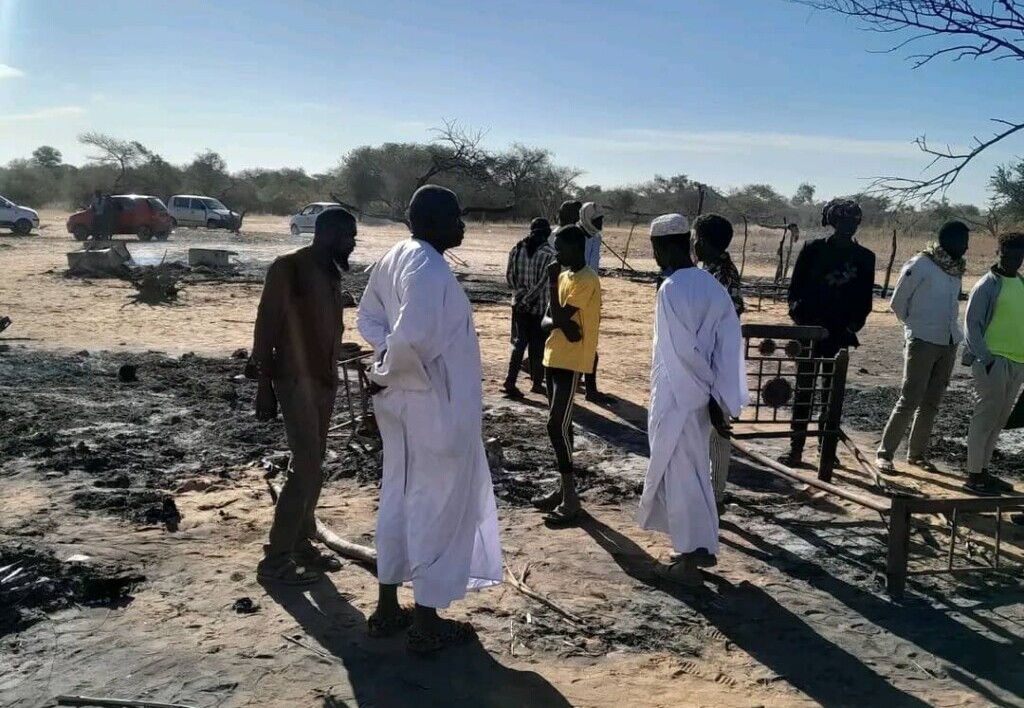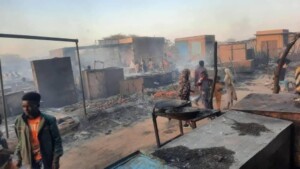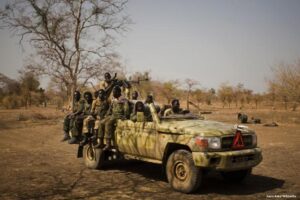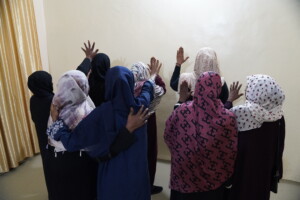West Kordofan: 16 civilians dead after battles and airstrikes

People inspect the area west of Muglad that was hit by air strikes the night before, January 22 (Photo: Social media)
Five civilians were reported killed due to battles between the Rapid Support Forces (RSF) and the Sudan Armed Forces (SAF) west of Babanousa in West Kordofan yesterday. 11 people were killed by SAF airstrikes 35 kilometres south of Babanousa on Sunday night.
Five civilians were reportedly injured in the first direct battles between the SAF and RSF in the area of Donki El Omda, west of Babanousa, yesterday morning. Five people were also seriously injured in direct clashes and taken to Muglad Hospital for treatment.
The battles, which lasted one hour, were the first of their kind between a force from the Sudan army’s 22nd Division and an RSF unit in the area. Residents told Radio Dabanga that violent clashes started over a disagreement over a water supply frequented by the RSF. The RSF eventually withdrew.
One of the sources said that Babanousa is still under an RSF siege from eastern, southern, and western directions.
He said that almost all of the inhabitants of the town have fled to neighbouring villages and farms for fear of SAF-RSF clashes. They reportedly live in harsh humanitarian conditions, suffering from the “bitter cold” and lack of food. “The ground is their bed and the sky their cover. They have not yet received any food aid,” he said.
Deadly airstrikes
Eleven people were killed in an air strike carried out by the Sudanese Air Force on Abu Khaboub village, west of Muglad in West Kordofan, on Sunday, amid widespread condemnation from residents of the area.
Omda Jak Suleiman told Radio Dabanga yesterday that an Antonov dropped five barrel bombs on Abu Khaboub village at about 23:00 on Sunday.
The Muglad community leader explained that the airstrikes killed seven women, two men, and two children. One person was injured and large numbers of livestock were killed. Several houses were destroyed. “There are no RSF paramilitaries in the village,” said Suleiman.
Journalist Hamdan El Bashiri told Radio Dabanga that the warplane bombed several areas around the town, in areas where the RSF was not present, disputing the SAF claim that the paramilitary force was present in the bombed areas.
According to Sudan Tribune, the Sudanese warplanes mistakenly bombed several villages in west Muglad on Sunday night, instead of the RSF positions located in another area.
El Bashiri strongly condemned the SAF air attacks, accusing them of “deliberately” targeting civilian settlements. The incident was also widely condemned by people living in the area, especially native administration leaders. A statement issued in December warned of such targeting.
RSF presence
The RSF has reportedly significantly bolstered its military presence near Babanousa in recent days, with plans to target the command of the 22nd Infantry Division, according to a local leader from the Misseriya tribe who spoke to Sudan Tribune.
After the failure of native administration* leaders and community committees to reach an agreement to prevent a confrontation between the RSF and the SAF, fear is growing of an imminent attack on the base of the 22nd Infantry Division.
The atmosphere of tension and rumours prompted people to start leaving Babanousa in what can be considered the third wave of displacement since September.
* The Native Administration was instituted by British colonial authorities seeking a pragmatic system of governance that allowed for effective control with limited oversight by the state. The state-appointed tribal leaders were also responsible for executing policies, collecting taxes, and mobilising labour on behalf of the central government. According to the Darfur Bar Association (DBA), the Native Administration during the 30-year dictatorship of Omar Al Bashir did not represent the real community leaders.











 and then
and then